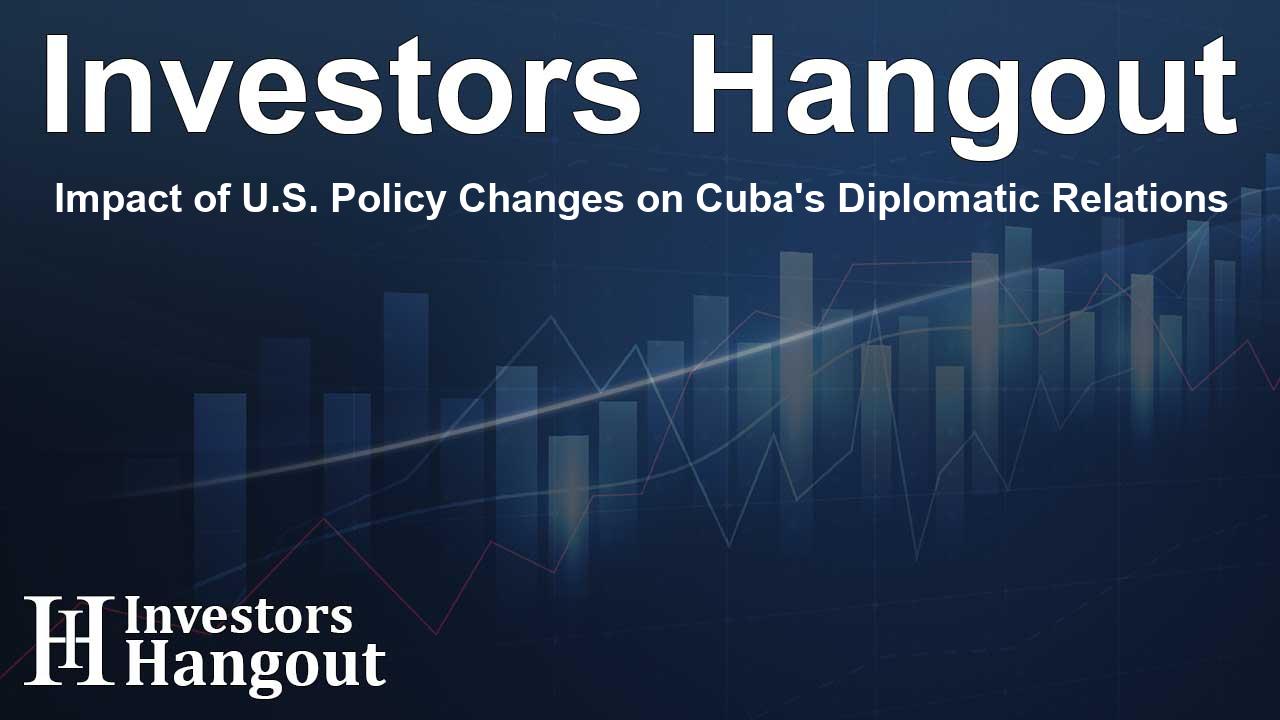Impact of U.S. Policy Changes on Cuba's Diplomatic Relations

Significant Changes in U.S. Policy Towards Cuba
Recent developments suggest that the U.S. administration is poised to review Cuba's designation as a state sponsor of terrorism. The anticipation is that these changes could reshape diplomatic relations between the two nations.
Background of the Designation
The current designation of Cuba as a state sponsor of terrorism was reinstated during the final days of the previous administration. This designation has had lasting implications for bilateral relations, causing major setbacks in diplomatic progress achieved earlier.
Historical Context
The previous rapprochement between the U.S. and Cuba, initiated during the Obama administration, aimed to improve relations after decades of tension. This included easing travel restrictions and promoting economic engagement, fostering a more open dialogue.
Potential Future Developments
There is speculation that the new administration may reverse the current designation, which could have significant ramifications for U.S.-Cuba relations. Political figures who have advocated for a tougher stance on Cuba have promised to revisit this issue, indicating a potential shift in U.S. strategy.
Responses from Political Leaders
Various political leaders, including those with personal ties to Cuba, have strongly expressed their views regarding engagement with the island. Their perspectives often influence public sentiment and subsequent policy decisions, making this a crucial time for diplomatic discussions.
Implications for the Cuban People
Changes in U.S. policy could directly affect everyday life in Cuba. Economic sanctions and diplomatic strain have profound impacts on the availability of resources, trade, and the overall quality of life for Cubans. A potential easing of restrictions could lead to improved conditions for the Cuban populace.
International Reactions
Global reactions to shifts in U.S. policy towards Cuba are considerable, with many nations keeping a close eye on the situation. The dynamics of international relations will likely be influenced by the U.S. stance and its implications on broader geopolitical contexts.
Frequently Asked Questions
Why is Cuba designated as a state sponsor of terrorism?
This designation has historically been based on Cuba's support for armed groups and its alleged involvement in international conflicts that promote terrorism.
What was the rapprochement between the U.S. and Cuba?
The rapprochement refers to the process of normalizing relations initiated by President Obama, which included easing restrictions and promoting engagement.
How will the potential policy changes affect Cubans?
Changes in U.S. policy could lead to improved economic conditions and access to resources for the Cuban people, depending on the nature of the amendments.
What are the anticipated changes in U.S. foreign policy?
Speculation suggests a potential rollback of previous sanctions and a renewed emphasis on diplomatic dialogue rather than isolation.
Who are the key political figures involved in Cuban relations?
Various legislators, including those with Cuban heritage and historical ties to the island, play significant roles in shaping U.S. policies toward Cuba.
About The Author
Contact Kelly Martin privately here. Or send an email with ATTN: Kelly Martin as the subject to contact@investorshangout.com.
About Investors Hangout
Investors Hangout is a leading online stock forum for financial discussion and learning, offering a wide range of free tools and resources. It draws in traders of all levels, who exchange market knowledge, investigate trading tactics, and keep an eye on industry developments in real time. Featuring financial articles, stock message boards, quotes, charts, company profiles, and live news updates. Through cooperative learning and a wealth of informational resources, it helps users from novices creating their first portfolios to experts honing their techniques. Join Investors Hangout today: https://investorshangout.com/
The content of this article is based on factual, publicly available information and does not represent legal, financial, or investment advice. Investors Hangout does not offer financial advice, and the author is not a licensed financial advisor. Consult a qualified advisor before making any financial or investment decisions based on this article. This article should not be considered advice to purchase, sell, or hold any securities or other investments. If any of the material provided here is inaccurate, please contact us for corrections.
